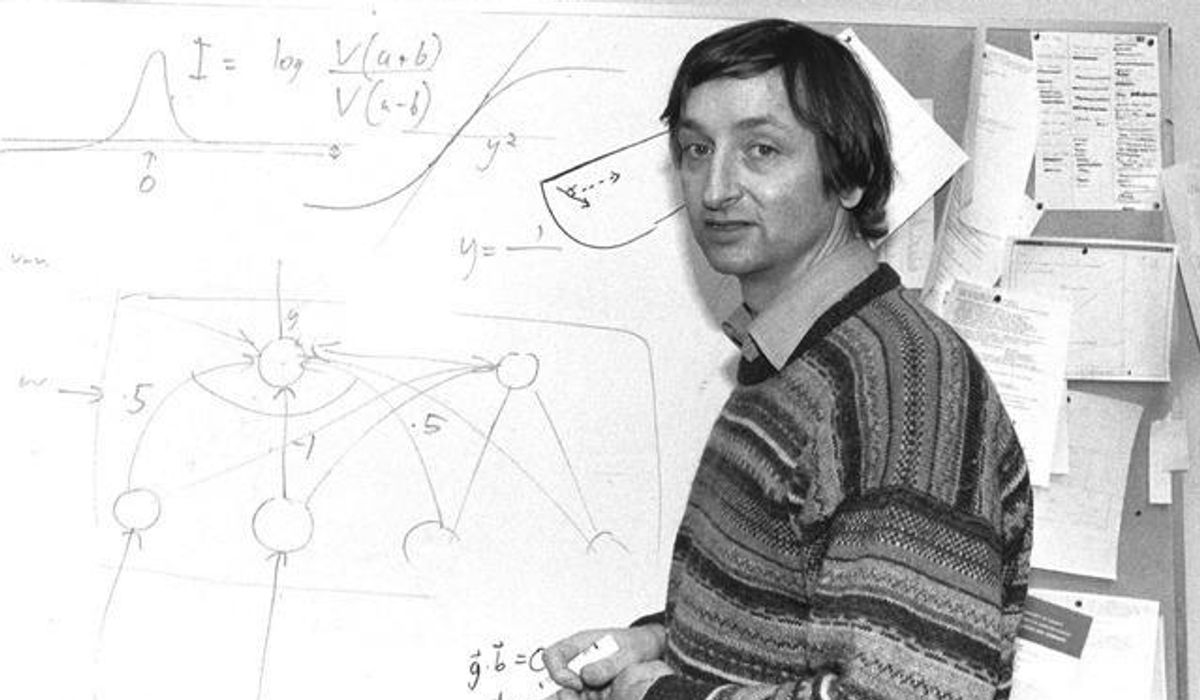***Excerpts from article
TORONTO — At 77 years old, Geoffrey Hinton has a new calling in life. Like a modern-day prophet, the Nobel Prize winner is raising alarms about the dangers of uncontrolled and unregulated artificial intelligence.
As the technology - and investment dollars - powering AI have advanced in recent years, so too have the stakes behind it. “It really is godlike,” Hinton said.
Hinton is among a growing number of prominent tech figures who speak of AI using language once reserved for the divine. OpenAI CEO Sam Altman has referred to his company’s technology as a “magic intelligence in the sky,” while Peter Thiel, the co-founder of PayPal and Palantir, has even argued that AI could help bring about the Antichrist.
With regulations and safeguards, Tegmark thinks AI can be used as a tool to do things like cure diseases and increase human productivity. But it is imperative, he argues, to stay away from the “quite fringe” race that some companies are running - “the pseudoreligious pursuit to try to build an alternative God.”
“There are a lot of stories, both in religious texts and in, for example, ancient Greek mythology, about how when we humans start playing gods, it ends badly,” he said. “And I feel there’s a lot of hubris in San Francisco right now.”
Complete Article:

 www.washingtontimes.com
www.washingtontimes.com
TORONTO — At 77 years old, Geoffrey Hinton has a new calling in life. Like a modern-day prophet, the Nobel Prize winner is raising alarms about the dangers of uncontrolled and unregulated artificial intelligence.
As the technology - and investment dollars - powering AI have advanced in recent years, so too have the stakes behind it. “It really is godlike,” Hinton said.
Hinton is among a growing number of prominent tech figures who speak of AI using language once reserved for the divine. OpenAI CEO Sam Altman has referred to his company’s technology as a “magic intelligence in the sky,” while Peter Thiel, the co-founder of PayPal and Palantir, has even argued that AI could help bring about the Antichrist.
With regulations and safeguards, Tegmark thinks AI can be used as a tool to do things like cure diseases and increase human productivity. But it is imperative, he argues, to stay away from the “quite fringe” race that some companies are running - “the pseudoreligious pursuit to try to build an alternative God.”
“There are a lot of stories, both in religious texts and in, for example, ancient Greek mythology, about how when we humans start playing gods, it ends badly,” he said. “And I feel there’s a lot of hubris in San Francisco right now.”
Complete Article:

AI Apocalypse? Why language surrounding tech is sounding increasingly religious
At 77 years old, Geoffrey Hinton has a new calling in life. Like a modern-day prophet, the Nobel Prize winner is raising alarms about the dangers of uncontrolled and unregulated artificial intelligence.
